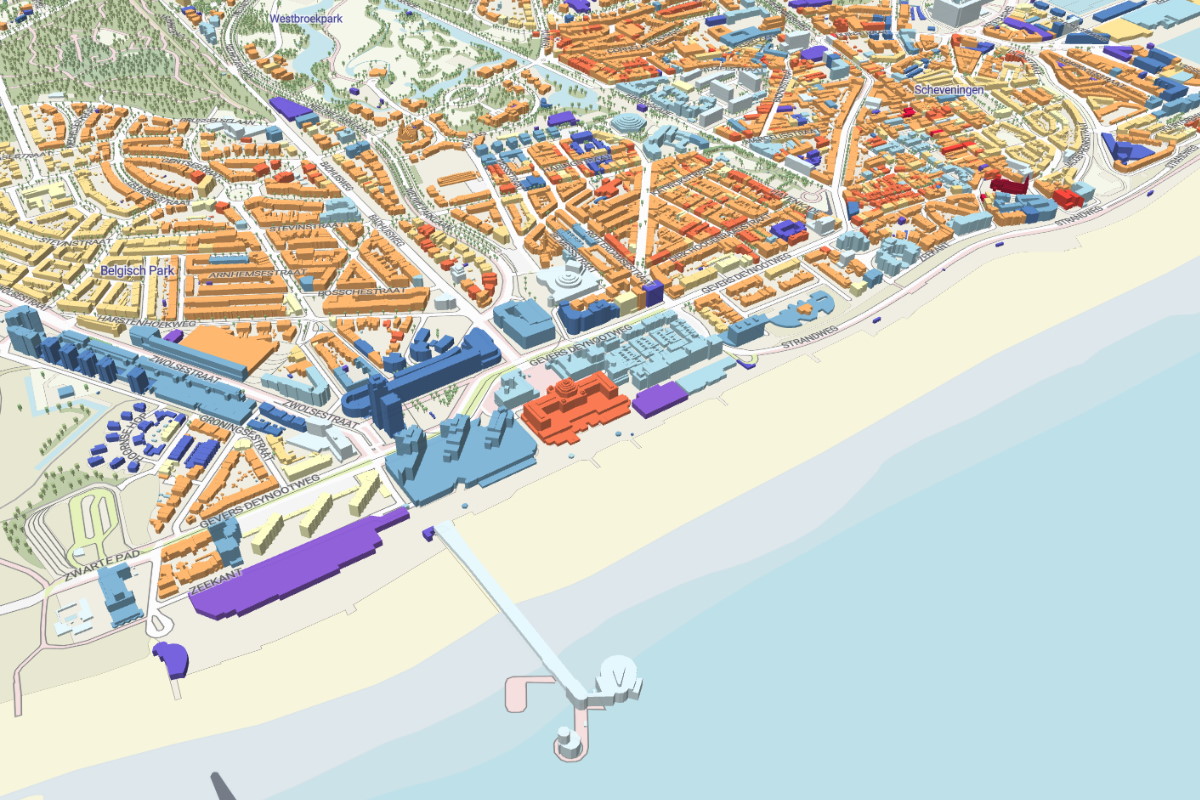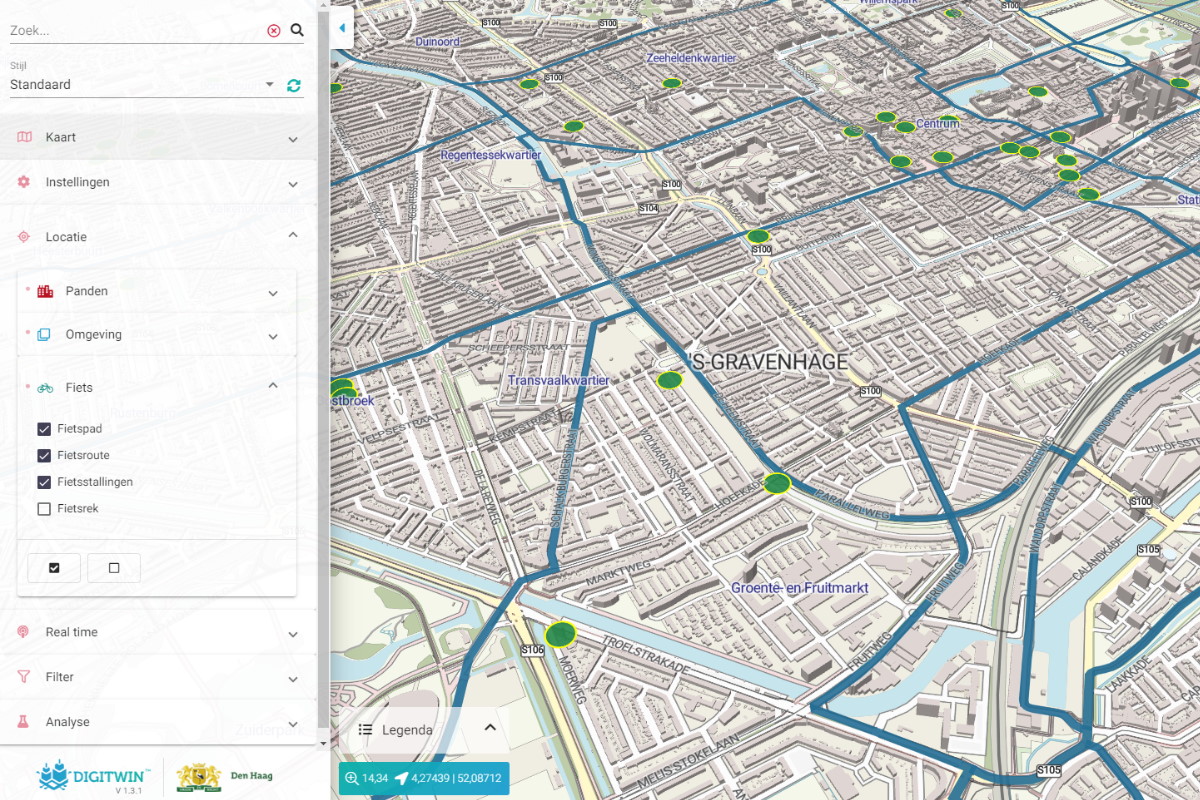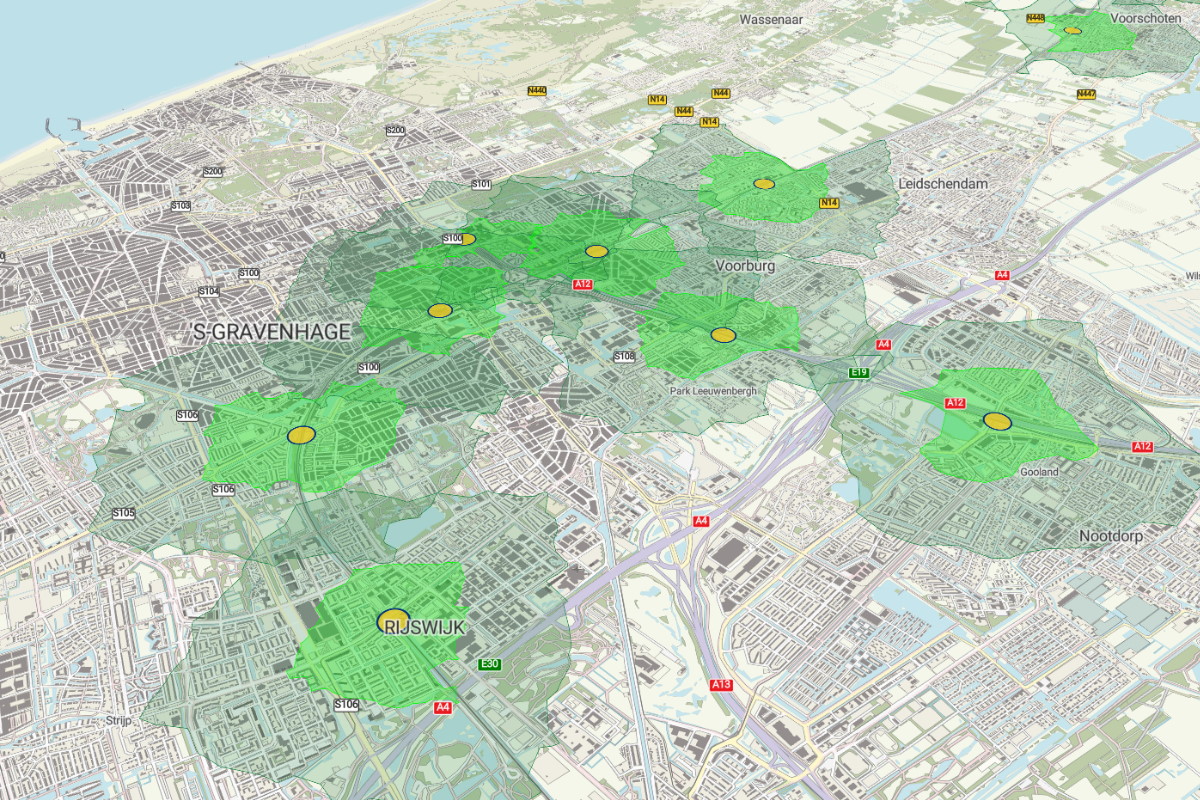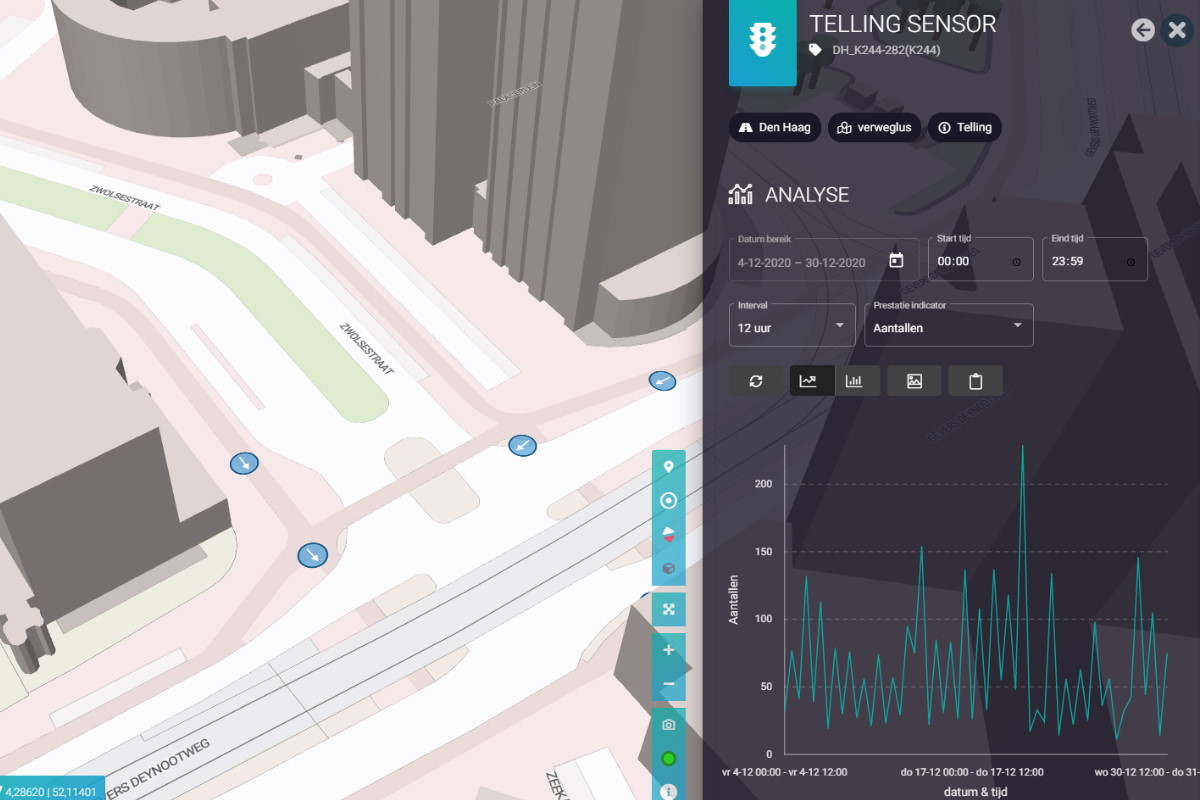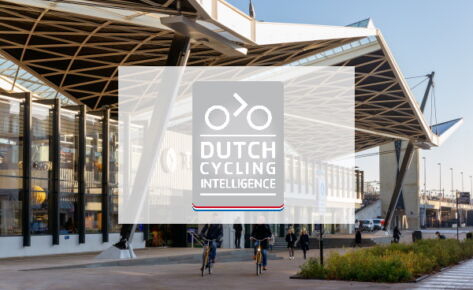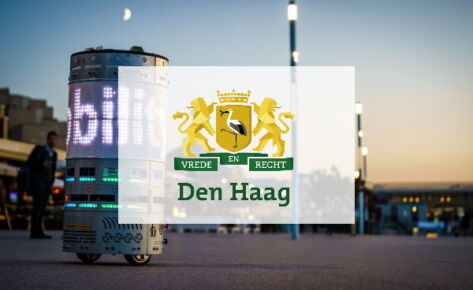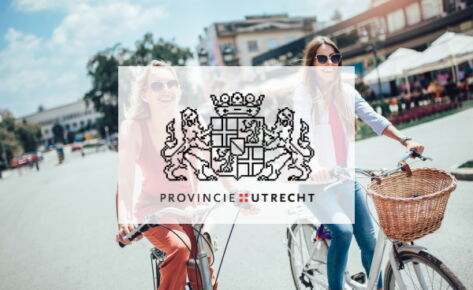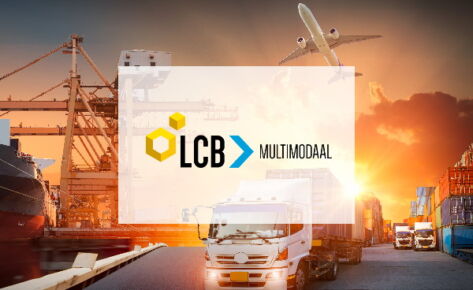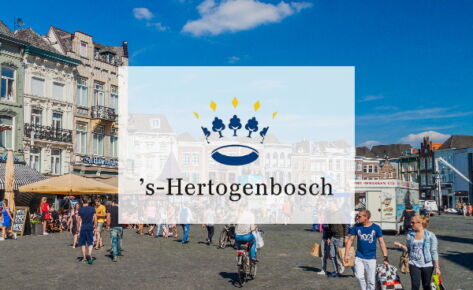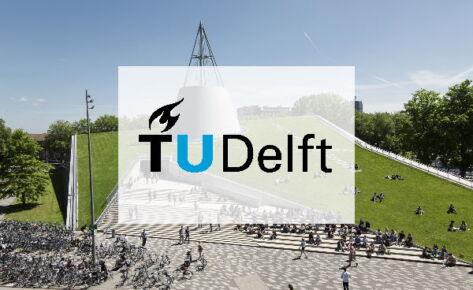the challenge
The Municipality of The Hague is developing a Living Lab on the coast of Scheveningen to learn how digitisation and technological solutions can contribute to solutions for social, economic and societal challenges facing the city. The municipality is learning what is needed for smart applications to succeed in an existing urban context, how these applications can better meet the needs of residents and which collaboration partners should be involved.
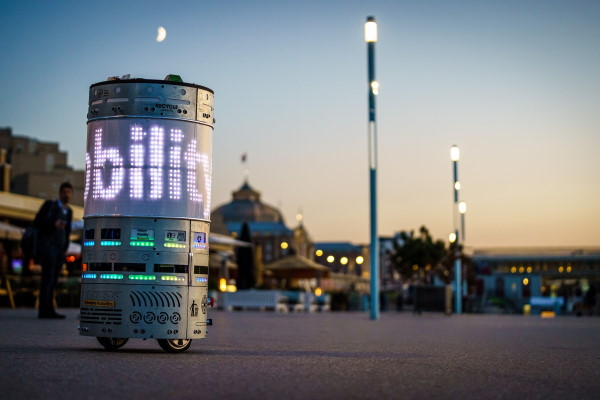
the solution
One of these technological solutions is a Digitwin dashboard in which (live) data is visualised and can be analysed. As a first step, pedestrian and bicycle data is examined to, among other things, support the management of peak traffic volumes.
This Digitwin solution includes the following insights:
- Link with 1600 counting points for cyclists
- Real-time location of buses, trams and trains
- Information about the cycle network, cycle paths and bicycle parking facilities
- Accessibility analyses of hotspots
result
Within the municipality of The Hague, various municipal services have already shown interest in making various data sources visually comprehensible via the Digital Twin, for example in the area of the environment, supervision and enforcement and mobility. At the same time, in this collaboration, the municipality also wants to further investigate how data from different sources can be accessed and shared via the Digital Twin. An example is data from the smart sound sensors which are now hanging in Scheveningen. With this, the Digital Twin can support short and long term insight into social issues of the city of tomorrow.
The visualization of data in the Argaleo dashboard helps us to easily analyze data and place it in a broader urban context. At the same time it enables us to anticipate social challenges.Yvette Entius, programme manager for Digital Innovation & Smart Cities


